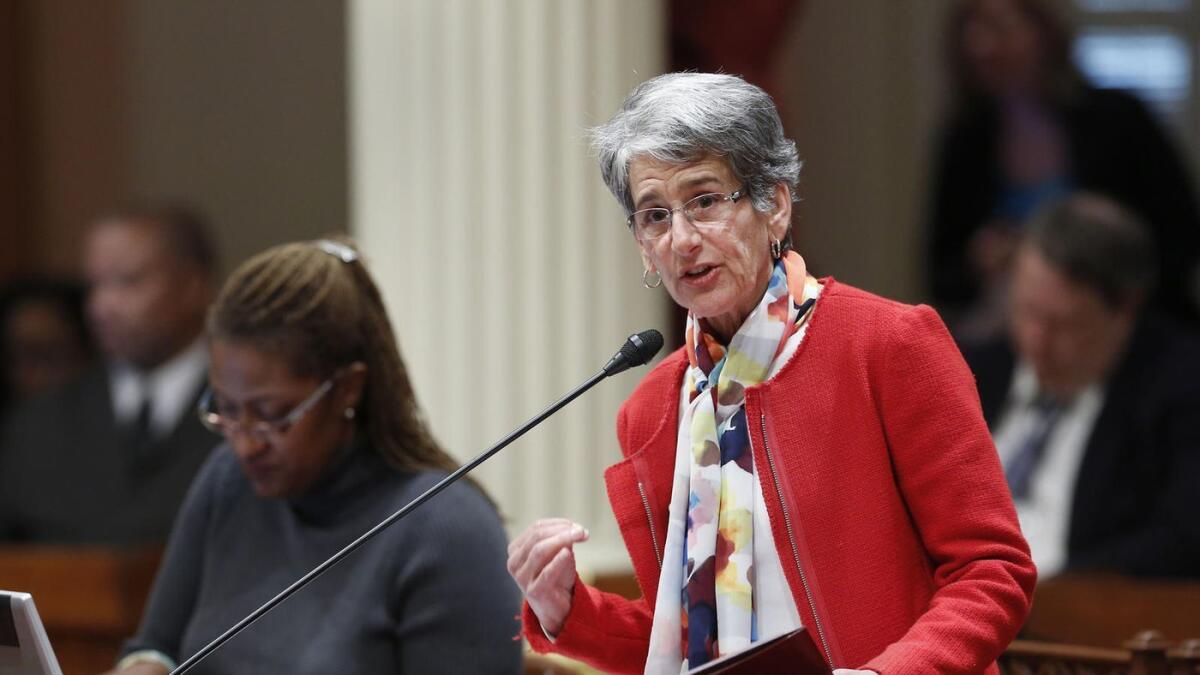Capitol Journal: California gives out too many tax breaks. And it’s losing billions on them each year

What a concept! After blindly giving out generous tax breaks for years, take a hard look to see whether they’re actually benefiting the state.
Do they create jobs? Lure businesses to California? Keep them here? Help companies expand? Fight climate change?
Our legislators and governors should have been asking these questions all along and demanding answers.
They’ve long yammered about conducting more oversight of just about everything the state does, but they invariably lose interest. There’s no political reward in wonky studies. But there’s lots of political risk in closing loopholes and requiring certain interests to pay higher taxes.
It takes only a simple majority vote in the Legislature to create a tax break. But it requires a difficult two-thirds vote to cancel the break and raise a tax. Doesn’t make sense.
Politicians hate to call anything a tax hike, and they’ll twist semantics to avoid it. So all these breaks and loopholes are referred to in government-speak as “tax expenditures.” That’s because they cost the state treasury money.
“Once these things are enacted,” state Controller Betty T. Yee says, “they’re there forever, although they may have outlived their usefulness.”
That’s assuming they ever had a legitimate use beyond enriching the beneficiaries.
Many were brokered in backroom budget deals when state spending plans required a two-thirds vote. There was a lot of vote buying back then. Californians wisely approved a ballot initiative in 2010 that reduced the budget vote to a simple majority.
Sen. Hannah-Beth Jackson (D-Santa Barbara) — considered a pesky liberal by many moderates and conservatives — is trying to shake up the comfy world of tax breaks. She is pushing Senate Bill 468, which would “sunset” — or kill — nine tax expenditures in three years unless they could be justified by the Legislative Analyst’s Office.
Those nine tax breaks are costing the state general fund $7.3 billion annually, Jackson says. To put that in perspective, the general fund for the current fiscal year is $144 billion.
“For too long,” Jackson says, “California has routinely granted generous tax credits and exemptions, which divert billions of dollars away from the general fund, without asking whether they deliver economic or social benefits to our state.
“These are dollars that could be spent on classrooms, addressing the housing crisis or combating wildfires and climate change.”
There needs to be “transparency and accountability,” she says, so “Californians can be sure their taxpayer dollars are being spent prudently, fairly and wisely….
“This is about shining light into some dark corners of our state budget that haven’t had sunshine for decades, if at all.”
Allan Zaremberg, president of the California Chamber of Commerce, says he’s all for studying everything, including the tangled web of state regulations.
“But frankly, for some of these measures — like the [research and development] credit — you don’t have to sunset it to look at it,” he says. “You don’t have to threaten people to have a good evaluation.”
Jackson’s bill is strongly backed by the California Teachers Assn. and the California School Boards Assn. They have gleams in their eyes: Roughly 40% of the state general fund goes to K-12 schools.
Few legislators, I suspect, know much about these complex tax breaks. The only real experts are lobbyists for the benefiting interests.
One loophole in Jackson’s sights is called the “water’s edge” provision. It allows multinational corporations to choose their method of taxation. The state’s cost is $2.2 billion this year.
Another target is that tax credit for research and development — a $1.6-billion item.
“It’s a great idea if California wants to relinquish its role as the epicenter of innovation and job creation. Otherwise it’s a terrible idea,” Silicon Valley Leadership Group President Carl Guardino told CALmatters, a nonprofit news group.
Jackson wants to investigate a $634-million state sales tax exemption on animals used for human food, and on feed for that livestock. Also covered by the exemption are edible plants and their fertilizers.
She also hopes to look at a $172-million sales tax exemption for farm equipment and an exemption for custom computer programs. The state doesn’t even know how much it’s losing on the software, except that it’s more than $100 million a year.
Jackson is barely scratching the surface of state tax breaks.
She isn’t even looking at all the income tax loopholes. They total $49 billion this year, according to the state Finance Department. But some thankfully are politically untouchable, such as the home mortgage interest deduction. It costs $4 billion. But are interest deductions on vacation homes justified?
“If we’re looking for some funding,” Yee says, “I’d say second homes is a place to go when many don’t even have a first home.”
The Finance Department counts up $6.6 billion in corporate tax loopholes and $9.6 billion in state sales tax exemptions.
Practically all should be looked at by our elected representatives.
“That’s a good idea,” Jackson told reporters. “But rather than take on the whole world, I thought we’d take one step at a time. This is low-hanging fruit. Why are we giving tax breaks to these programs?”
She hopes to cleanse some tax loopholes of waste, fraud and abuse — a tough chore.
Follow @LATimesSkelton on Twitter
More to Read
Get the L.A. Times Politics newsletter
Deeply reported insights into legislation, politics and policy from Sacramento, Washington and beyond. In your inbox three times per week.
You may occasionally receive promotional content from the Los Angeles Times.











